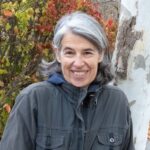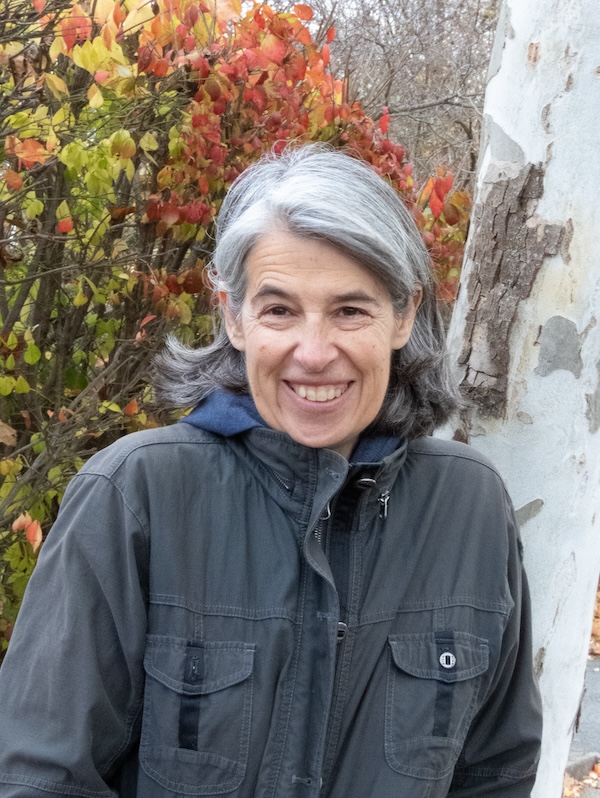
by Elissa Ely
Shortly after the pandemic began, when the only response within anyone’s control was isolation, Julia Blatt and her husband bought kayaks. They had canoed as a family for more than 30 years—Montana, Idaho, Maine, Colorado, Florida, Vermont, New Hampshire—and for years her professional work had taken her kayaking through the Concord, Sudbury, and Assabet rivers. Sometimes she brought politicians with her (a form of visual education) and sometimes it was a form of solo field research.
But this was different. The sky doesn’t know a pandemic is raging; birds and turtles have no idea and less interest. The river is simply itself. “Most people,” Julia says, “experience rivers as something they cross on the road.” But during COVID, the rivers were the road. Over the next months, Julia and her husband kayaked along about 15 of them.
Julia Blatt has been executive director of the Massachusetts Rivers Alliance since 2009, but rivers have been her road in one way or another starting in 1987. She was an aide to former Congressman Chet Atkins after college (Brown University: Modern European History) when staff divided up local issues in need of attention. In those days—imagine!—no one wanted to take the environment. She took it, and never let go.
Julia grew up in Sudbury, along a river but not on it. “I had no idea such a beautiful piece of nature was in town,” she says. “All I knew was that we crossed it on the way to Wayland and Lincoln.” Her family shared “an abundance of unconditional love,” though not for outdoorsmanship. One of their greater pleasures was reading together for hours in contented silence.
Still, the outdoors called. In the woods beyond the small backyard her father fondly mowed, she loved toads and salamanders and capturing lightning bugs (also, to be clear, letting them go). “What drew me outside was animals,” she explains. “I’d like to say something sophisticated, but really, I just love animals.”
She thought about becoming a Jacques Cousteau, or maybe a professional violinist, or maybe a psychologist, or maybe a rabbi. She felt certain she didn’t have a scientist’s mind. It was karma when no one in the congressman’s office cared to take the environmental assignment.
Julia began with the most elemental (yet most intelligent) strategy: she called local organizations to ask what they wanted. She learned that the Sudbury land trust wanted the Sudbury River to be designated—and therefore, protected—as a Wild and Scenic River. She also learned that this was far more complicated on water than on land; for starters, who owns a river, and where does its flow begin and end?
Eleven years of town meetings, surveys, collaboration with the Park Service, votes, and legislation followed. It led to a graduate degree in urban and environmental policy and launched a river career including becoming executive director of the Organization for the Assabet River. Now the Sudbury, Taunton, Nashua, and Westfield rivers have Wild and Scenic protection status. In life as in politics, asking what someone wants is the place to start.
In 2009, Julia became executive director of the Massachusetts Rivers Alliance. “I thought I’d do it for a year,” she says. She was wrong; it has been fifteen years by now. “It takes all of you: work with people, the mission, the vision, the strategies, the writing. I like the ups and downs of working as a team.” Rivers drew her back to them.
The Alliance (funded almost entirely by donations) began as a small group of about 10 organizations. It has grown to 85 (including the Belmont Citizens Forum,) and their website goals can seem a little daunting: improving water quality and streamflow, habitat protection, climate resilience, environmental justice, stormwater management, mosquito control, vulnerability preparedness, sewage discharge notification, and dam issues. The needs appear endless.
And, 85 organizations in a room means 85 opinions. Under Julia’s guidance, though, somehow they come to consensus on annual priorities. “We work on a surprising number of issues at the same time,” she says. “If you want to protect rivers, you have to come together on an issue, even if it’s not YOUR issue. We end up punching above our weight.”
The accomplishments are proof: among others, they have won multimillion dollar increases in protective funding, defeated damaging bills, increased aquatic protection, improved drought response, infrastructure funding, and stormwater utilities, and forced necessary help from the EPA.
In March 2020, a virus threw the 85 groups (and the world) into chaos. In April 2020, an addition to her usual work, Julia organized “Mass Rivers Connects,” a monthly peer Zoom with educators, scientists, fundraisers, board members, and executive directors. The sessions, full of camaraderie and advice, became so popular that they have continued even as the pandemic has receded.
At the start and finish of it all, there is the state of the world. Back in 1987, when Julia was a congressional aide, no one competed to cover the environment; it was a low-shelf issue. But even the birds and turtles sense that this has changed. “Most people will actually experience the impacts of climate change through their interactions with water,” she wrote in a recent op-ed for the Daily Hampshire Gazette. In Massachusetts, fire is more frequent, droughts more severe. A summer ago, parts of some rivers became “disconnected puddles.” And this, for her, is “a reason the work feels urgent and central. All environmental work is about climate change. You can just give up, or you can be the person who says ‘What can I do?’ I want to be that person.”
She does this for the rivers. Then, there is what the rivers do for her. Here is how Julia views them from her kayak: “I can’t imagine a happier place to be than on the water—the landscape, the sky, the trees, the animals, the way water rocks you. You don’t have to work hard. The river will carry you.”
Elissa Ely is a community psychiatrist.



Sorry, the comment form is closed at this time.